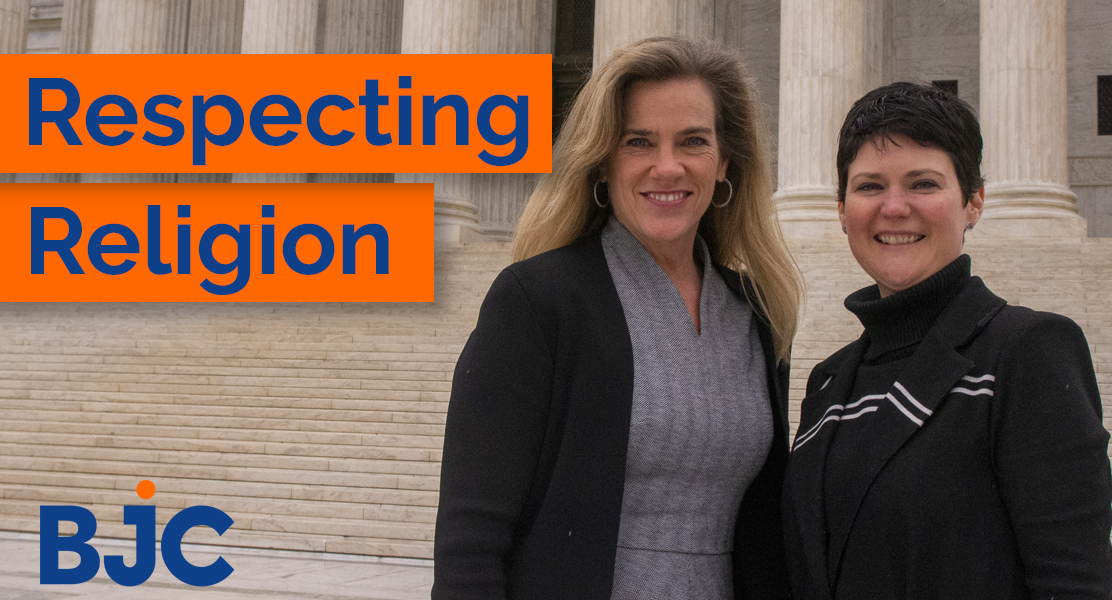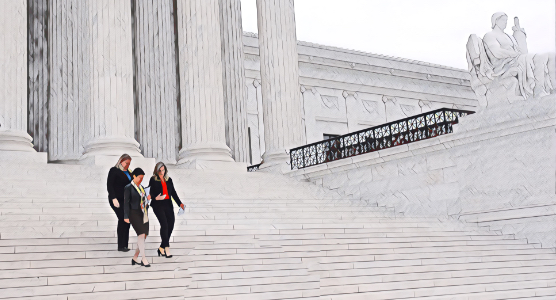S3, Ep. 05: What’s the problem with the government funding religious education? A preview of Carson v. Makin
Amanda and Holly discuss government funding and the religion clauses

A central concern for BJC in protecting faith freedom for all involves keeping the government out of religion, and that principle is at stake at the Supreme Court next week. Holly and Amanda preview the case of Carson v. Makin, talking about the Baptist beginnings of protecting religious liberty, the importance of religious education, the unique school system in the state of Maine, and how this case is different from cases involving school vouchers. After listening to this episode, you’ll also be able to impress your friends with trivia about Maine’s public school system. In segment three, they talk about a troubling article and share a warning about overreaching arguments.
Listen below, or subscribe to Respecting Religion on your favorite podcasting provider, including Apple Podcasts, Spotify, Google Podcasts, Amazon Music, and more!
SHOW NOTES:
Segment one: Why are cases about government funding important? (starting at 00:48)
Holly previewed Carson v. Makin in this article for BJC’s winter magazine: Forcing states to fund religion
Amanda mentioned this article in The Atlantic by Kimberly Wehle: The Sleeper SCOTUS Case That Threatens the Separation of Church and State
Holly read from the brief of the attorney general of Maine to describe Maine’s public education system and the law that provides school administrative units (SAUs) — alternative ways to ensure every child has an opportunity to receive the benefits of a free public education.
Segment two: Is there a free exercise right to government money? (starting at 17:10)
Holly mentioned two recent cases that involved Free Exercise Clause claims challenging government programs:
- Trinity Lutheran v. Comer (the playground case): Learn more at BJConline.org/TrinityLutheran
- Espinoza v. Montana Dept. of Revenue: Learn more at BJConline.org/Espinoza
Read the brief BJC joined in Carson v. Makin at this link.
Amanda read from James Madison’s Memorial and Remonstrance:
- “Because the Bill implies either that the Civil Magistrate is a competent Judge of Religious Truth; or that he may employ Religion as an engine of Civil policy. The first is an arrogant pretension falsified by the contradictory opinions of Rulers in all ages, and throughout the world: the second an unhallowed perversion of the means of salvation.”
Amanda mentioned their conversation about Espinoza on season one, which you can listen to at this link or in your podcast feed.
Segment three: Is Maine discriminating between religions? Spoiler alert: No (starting at 32:31)
You can find the link to the article they mention in The Atlantic article linked in segment one.
Respecting Religion is made possible by BJC’s generous donors. You can support these conversations with a gift to BJC.





